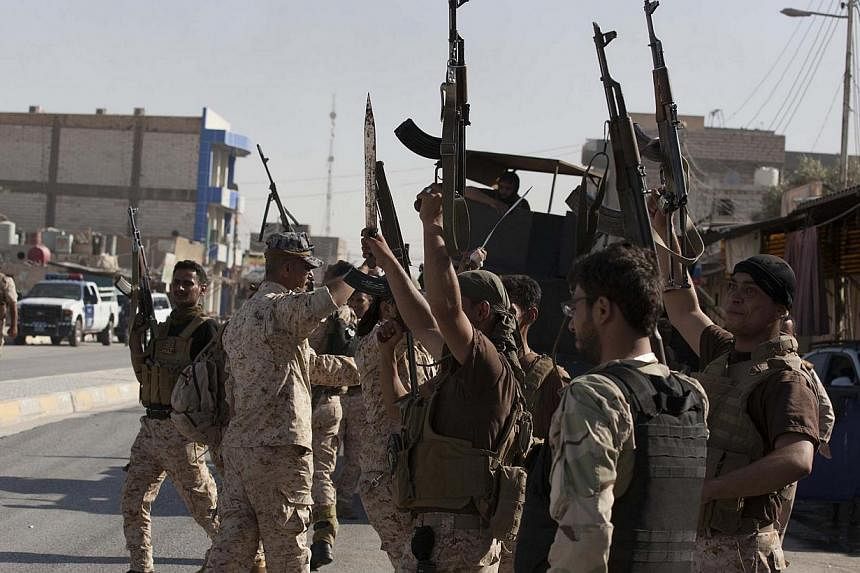WASHINGTON (AFP) - US military teams have completed an assessment of Iraqi security forces, the Pentagon said on Monday, amid reports the American officers came away with bleak conclusions.
The teams were deployed to Baghdad this month after Sunni militants swiftly advanced across the country in a string of disastrous battlefield defeats for Shi'ite-led government forces.
"The assessments from the teams in Iraq have reached the Pentagon," spokesman John Kirby told reporters.
According to The New York Times, the assessment warned that any American troops serving as advisers would face safety risks given infiltration of the Iraqi army by Sunni extremists and Iran-backed Shi'ite troops or militia.
Citing US officials, the newspaper said the classified assessment also found that only about half of the Iraqi army's units are capable enough to be worth advising by American troops.
Rear-Admiral Kirby declined to comment on the report's details but acknowledged the danger posed by "insider threats" and that the military had drawn lessons from its experience in Afghanistan, where some Nato troops have been attacked and killed by Afghans in uniform.
"It would be imprudent, irresponsible not to think about the insider threat," he said.
The assessment took two weeks to prepare and looked at the strength, cohesiveness and leadership of Iraqi units at the brigade level, officials said.
Defence Secretary Chuck Hagel and top military commanders will review the assessment and then recommend possible missions for American military advisers, said Rear-Adm Kirby.
But at the moment, the roughly 220 US advisers on the ground are solely focused on evaluating the Iraqi army and not providing tactical advice in Baghdad's fight with the Sunni extremists, he said.
"The initial work is done, additional assessment work continues. We have not moved to an advisory capacity at this point," he said.
Rear-Adm Kirby's remarks left open the possibility that the White House might decide not to send more advisers or to provide more hands-on help to Baghdad's troops.
President Barack Obama has not ruled out air strikes, but he and top military leaders have said the crisis in Iraq can only be resolved through a settlement with leaders of the country's Sunni, Shi'ite and Kurdish communities.
The chairman of the US Joint Chiefs of Staff, General Martin Dempsey, told National Public Radio last month that air strikes could have the objective of targeting senior leaders among the Islamist militants, safeguarding infrastructure or "blunting attacks" by large numbers of militants, possibly to counter an assault on Baghdad.
Gen Dempsey told lawmakers last week that Iraqi forces had shored up their defences but would be hard-pressed to regain lost territory without outside help.
The Times reported the assessment teams concluded Iraqi troops had the ability to defend Baghdad but not necessarily to hold the entire city, particularly if faced with a major attack.

